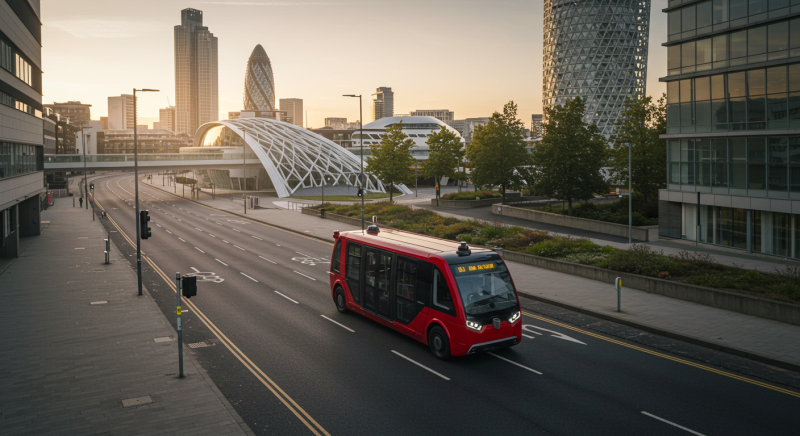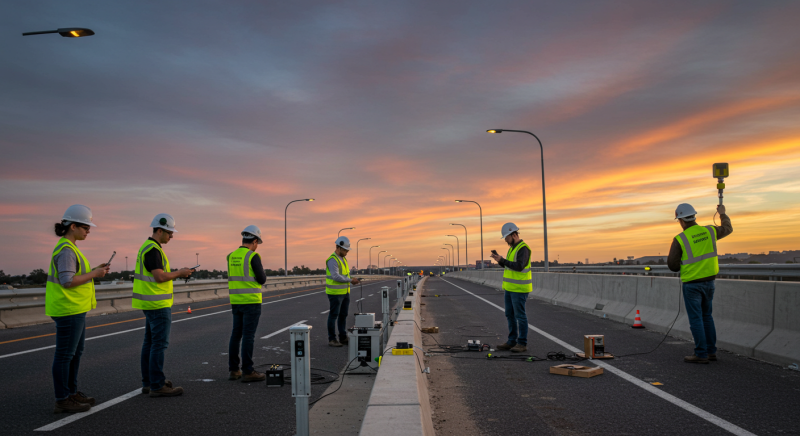Imagine the thrill of seeing your transport innovation—the one born from late-night brainstorming and fueled by passion—finally hitting real-world roads. That spark of hope and the anxiety of securing crucial funds merge into a roller-coaster of emotion. For many founders, transportation grants for UK startups represent both a lifeline and a validation of their vision.
Key Takeaways
Within this guide, you will uncover the most impactful transportation grants for UK startups available in 2025, discover step-by-step application strategies, and learn how to align your proposal with funders’ priorities. You’ll also find expert tips to avoid common pitfalls and see inspiring examples of startups that transformed grant awards into market success.

News Bulletin: Latest transportation grants for UK startups
In the first half of 2025, a dynamic array of transportation grants for UK startups has been announced, ranging from small proof-of-concept awards to multi-million-pound competitions targeting decarbonisation, safety, and freight efficiency UK Research and InnovationGOV.UK.
Innovate UK’s flagship First of a Kind (FOAK) 2025 competitions have opened multiple themed challenges, including the Bridge Strikes programme offering a share of £4.7 million to develop and test systems that protect infrastructure from accidental collisions, with projects running for three to seven months until March 2026 UK Research and Innovation. Complementary FOAK themes in Personal Safety, Platform Train Interface, and AI for Complex Processes similarly provide up to £200,000 per project, underscoring the importance of transportation grants for UK startups in addressing safety and operational challenges across the rail and road network find-government-grants.service.gov.uk.
At the smaller scale, the Department for Transport’s Transport Research and Innovation Grants (TRIG) programme has entered its tenth year, funding dozens of early-stage technology trials with awards averaging £30,000 to £45,000 and totalling over £1.3 million in the 2024–25 round to accelerate novel solutions from concept to proof of principle GOV.UKGOV.UK. This rolling scheme remains a vital source of transportation grants for UK startups seeking to validate innovative ideas without heavy upfront investment.
Freight-focused funding continues through the Mode Shift Revenue Support (MSRS) scheme, extended until 31 March 2026, which reimburses the cost differential of intermodal rail and inland waterways freight versus road under an annual budget of approximately £20 million aimed at shifting over 900,000 lorry journeys each year GOV.UKLogistics UK. This extension ensures that transportation grants for UK startups in logistics can continue to drive modal shift and reduce carbon emissions across the supply chain.
In the maritime sector, the Clean Maritime Demonstration Competition 6: Smart Shipping closed in April 2025, distributing up to £30 million across three strands—including pre-deployment trials and feasibility studies—designed to showcase clean vessel technologies ready to begin operations by September 2025 and complete by March 2026 apply-for-innovation-funding.service.gov.ukfind-government-grants.service.gov.uk. This round under the UK Shipping Office for Reducing Emissions (UK SHORE) programme highlights the deepening commitment of transportation grants for UK startups to deliver zero-emission shipping solutions.
Together, these transportation grants for UK startups reflect a coordinated push by Innovate UK and the Department for Transport to de-risk innovation, support sustainability, and enhance safety, with further rounds and new opportunities anticipated through the Innovate UK and UK SHORE portals as 2025 progresses find-government-grants.service.gov.uk.

How to Secure transportation grants for UK startups: A Step-by-Step Guide
Securing transportation grants for UK startups begins with a clear understanding of where your venture sits on the innovation journey and which funding scheme is best suited to propel it forward. Early-stage ideas with limited technical validation often flourish under smaller proof-of-concept awards, whereas established prototypes ready for real-world trials benefit most from larger, multidisciplinary competitions. By matching your project’s technical readiness level and business maturity to specific grant criteria, you can avoid wasted effort on misaligned applications and focus your resources on opportunities that truly accelerate progress.
The next critical step in winning transportation grants for UK startups involves immersing yourself in the detailed requirements and evaluation criteria of each funding call. Take the time to dissect the scope documents, eligibility rules, and priority themes laid out by sponsoring bodies. Note key dates for submissions, consortium requirements, and any mandatory deliverables such as risk assessments or route-to-market analyses. A thorough eligibility check—covering company size, project duration, and allowable costs—will ensure you spend effort only on grants where your startup truly qualifies, saving precious time and budget.
Crafting a compelling, cohesive narrative is at the heart of every successful application for transportation grants for UK startups. Your proposal should weave together a clear articulation of the market gap you are addressing, the innovative features of your solution, and the societal or environmental benefits it will deliver. Illustrate the technical feasibility of your approach with realistic milestones and measurable performance indicators. Highlight how the grant funding will unlock critical milestones—whether it’s a live pilot, safety certification, or scale-up of manufacturing—and explain how these milestones reduce project risk and accelerate commercial traction.
Building strategic partnerships can markedly strengthen your bid for transportation grants for UK startups. Collaborations with leading research institutions, technology centres, or industry stakeholders not only bring valuable expertise but also signal to funders that your project has credible support and access to essential infrastructure. Engage with regional innovation hubs, sector catapults, and trade associations to explore co-funding opportunities, share resources, and gain insights into application best practices. Demonstrating a robust network of collaborators underscores your commitment to delivering impactful, scalable transport solutions.
Finally, successful applicants for transportation grants for UK startups always submit early and allow adequate time for review, feedback, and final adjustments. Prepare all supporting documents—financial forecasts, project plans, risk mitigation strategies, and letters of support—well in advance of the deadline. Use pre-submission validation services offered by funding bodies when available, as these can uncover gaps or weaknesses you may have overlooked. By executing a disciplined submission process with built-in quality checks and stakeholder input, you maximize your chances of transforming grant opportunities into tangible project success.
Spotlight on European and Regional Funding
Within Europe, several major funding programmes offer transportation grants for UK startups, including the Connecting Europe Facility (CEF), Single Market Programme (SMP), and EISMEA-managed schemes. These complement national grants by providing multi-billion-euro budgets aimed at infrastructure, innovation, and SME competitiveness. Regionally across the U K, bodies such as Scottish Enterprise, the West Midlands Innovation Accelerator, and local transport authorities via the Local Transport Resource Funding (LTRF) also offer targeted grants that de-risk R&D and pilot deployment in transport tech.
Connecting Europe Facility (CEF)
The Connecting Europe Facility is a flagship €33.71 billion programme (2021–2027) dedicated to upgrading Europe’s transport, energy, and digital networks, making it a prime source of transportation grants for UK startups engaged in cross-border infrastructure and smart mobility projects eucalls.net. Under CEF-Transport, UK entities can join transnational consortia to co-finance major infrastructure works, digital transport corridors, and innovative trial deployments that might otherwise exceed purely domestic funding capacities Internal Market and SMEs.
Single Market Programme (SMP)
With a budget of €4.2 billion for 2021–2027, the Single Market Programme strengthens SME competitiveness and market access throughout the EU European Commission. The SMP’s SME Window, managed by the European Innovation Council and SMEs Executive Agency (EISMEA), provides direct grants and equity to deep-tech and transport-tech startups, enabling UK SMEs to integrate into European value chains and cross-border pilots—an ideal supplement to UK national transportation grants for UK startups European Commission.
EISMEA and European Innovation Council
EISMEA runs dedicated calls to bridge the “valley of death” between early-stage research and commercialisation, offering up to €2.5 million in grants or equity via the European Innovation Council Accelerator for game-changing transport solutions EU Grants and Funding. Through these schemes, pioneering UK transport startups can secure high-value funding to scale prototypes, validate business models, and attract follow-on private investment, complementing smaller domestic awards.
Interreg Programmes
Interreg fosters inter-regional cooperation and innovation across European borders, with specific strands for transport, sustainability, and digitalisation Interreg Europe. UK regions (e.g., Northern Ireland–Ireland, Scotland–Northern England) can access Interreg cross-border calls to develop and test transport innovations that benefit adjacent markets, effectively multiplying the impact of national transportation grants for UK startups through international collaboration Home – Interreg EU.
Regional and Local Funding
Scottish Enterprise and Local Transport Resource Funding
Scottish Enterprise aggregates public-sector grants, including innovation and R&D support, to help transport-tech companies conduct feasibility studies and pilot projects within Scotland Business Support Scotland. Additionally, the UK Government’s Local Transport Resource Funding (LTRF) provides one-year grants to local transport authorities, indirectly creating procurement and pilot opportunities for innovative SMEs GOV.UK.
West Midlands Innovation Accelerator
Hosted by the West Midlands Combined Authority, this programme offers grants and in-kind support to transport manufacturing and clean-tech startups, helping to diversify supply chains and transition to zero-emission solutions West Midlands Combined Authority. By leveraging regional clusters and specialist hubs, UK startups can secure transportation grants for UK startups that are tailored to local needs and supply-chain strengths.
Other Regional Hubs
Across England, Growth Hubs and Mayor’s Academies in Greater Manchester, the Liverpool City Region, and the Leeds City Region similarly provide small grants, proof-of-concept funding, and networking opportunities for transport innovators, amplifying the reach of pan-European and national transportation grants for UK startups Home – Interreg EU.
Integrating European and Regional Grants
By strategically combining European programmes (CEF, SMP, EIC/EISMEA, Interreg) with regional UK funds, transport-tech entrepreneurs can build financing “ladders” that take projects from concept to cross-border demonstration. Early proof-of-concept work might be funded by regional grants, followed by SMP/EIC support for scale-up, and culminating in CEF deployment within transnational corridors—maximizing both impact and budget efficiency.
Integrating these funding layers not only broadens the financial base for UK transport innovation but also enhances market credibility, fosters international partnerships, and aligns ventures with Europe’s strategic decarbonisation and digitalisation goals, ensuring that transportation grants for UK startups deliver sustainable, scalable outcomes across the continent.

Inspiring Success Stories
Last year, a UK-based green charging infrastructure startup secured £122 million in private investment following early prototype grants—demonstrating grant funding’s catalytic effect on attracting further capital Reuters. Similarly, several transport-tech SMEs used TRIG awards to validate sensor-based safety systems, leading to follow-on contracts with major transport operators.
Expert Tips and Common Pitfalls
Ensure your financial plan is realistic and clearly linked to project deliverables. Overestimating costs or ambiguous timelines often undermines applications. Engage with funder webinars and pre-submission advice sessions to clarify doubts and strengthen your proposal.
Avoid generic applications; instead, tailor each section to the specific grant’s objectives. Demonstrating alignment with broader UK decarbonisation and innovation strategies significantly boosts competitiveness.
Conclusion
Transportation grants for UK startups offer transformative funding opportunities that can propel your transport innovation from concept to commercial reality. By systematically identifying the right scheme, crafting a targeted application, and leveraging partnerships, you position your venture to secure critical support in 2025. Embrace this strategic roadmap to unlock the resources your startup deserves.
FAQ
What are the main transportation grants for UK startups in 2025?
The key schemes are Innovate UK’s FOAK competitions (up to £4.7 million), the Department for Transport’s TRIG (£45 000), and the MSRS freight scheme.
Can early-stage startups with minimal prototypes apply?
Yes. TRIG is designed for early-stage projects (TRL 2–4), providing up to £45 000 to progress prototypes.
Are there regional transport grants outside London?
Yes. Scottish Enterprise and regional Growth Hubs often co-fund transport innovation grants, and the EU’s Single Market Programme supports cross-border regional projects.
How do I find European transport funding?
Use the EU Funding Portal or Connecting Europe Facility pages to search by theme, eligibility, and deadline.
Is private investment necessary after grant funding?
While not mandatory, successful grant projects often attract follow-on private investment, accelerating scale-up and commercialization.
read more
US Work Visa: Everything You Need to Successfully Apply
